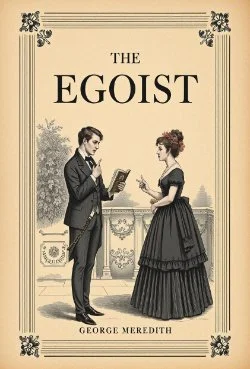By George Meredith (Author), Colin Heston (Introduction)
George Meredith’s “The Egoist” is widely regarded as one of his most accomplished and mature works, combining his characteristic wit, psychological depth, and social critique into a sharp and satirical narrative. Published in 1879, this novel represents a pinnacle in Meredith’s literary philosophy—his commitment to using fiction not merely as entertainment but as a vehicle for exploring human character, societal expectations, and the subtle dynamics of personal relationships. In many ways, “The Egoist” functions both as a comedy of manners and as a profound psychological study, holding a mirror up to the follies and vanities of Victorian society.
At the heart of “The Egoist” lies a central theme that preoccupied Meredith throughout his literary career: the tension between individual selfhood and the demands of others—particularly within the confines of marriage and social conventions. The story revolves around Sir Willoughby Patterne, a wealthy and charming yet profoundly self-absorbed gentleman, whose narcissism forms the axis upon which the novel’s drama turns. Meredith describes him as a man who regards others merely as extensions of his own identity, whose self-love blinds him to the autonomy, desires, and inner lives of those around him. Willoughby’s egoism is not the mere arrogance or pride commonly depicted in fiction but is an all-encompassing psychological state—a subtle, insidious failure of empathy and moral imagination.
In conclusion, “The Egoist” is more than a satire of a single narcissistic man; it is a brilliant dissection of the subtle forces that govern human relationships. Through its precise psychological characterization, sharp wit, and philosophical depth, the novel transcends its Victorian context to speak to enduring questions about identity, autonomy, and the ethical demands of living among others. Its challenge to readers remains as relevant today as it was in 1879: to recognize, confront, and transcend the egoisms that so often distort both personal and social life.
Read-Me.Org Inc. New York-Philadelphia-Australia. 2025. 441p..


